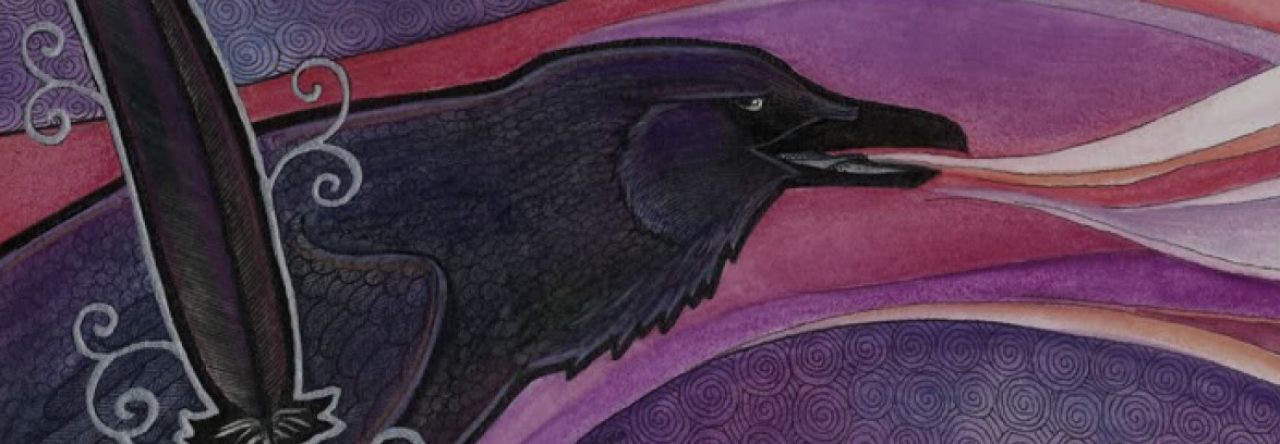
Ragnarok—aka the end of the world—was supposed to doom the gods as well. Instead, it was a cosmic rebooting. Now low-level IT tech and comic-book geek Sigmund Sussman finds himself an avatar of a Norse goddess. His boyfriend, the wealthy entrepreneur Lain Laufeyjarson, is channeling none other than Loki, the trickster god. His best friends, Em and Wayne, harbor the spirits of slain Valkyries. Cool, right?
The problem is, the gods who survived the apocalypse are still around—and they don’t exactly make a great welcoming committee. The children of Thor are hellbent on reclaiming their scattered birthright: the gloves, belt, and hammer of the Thunder God. Meanwhile, the dwarves are scheming, the giants are pissed, and the goddess of the dead is demanding sanctuary for herself and her entire realm.
Caught in the coils of the Wyrd, the ancient force that governs gods and mortals alike, Sigmund and his crew are suddenly facing a second Ragnarok that threatens to finish what the first one started. And all that stands in the way are four nerds bound by courage, love, divine powers, and an encyclopedic knowledge of gaming lore.
An eARC of this book was received from the publisher via Netgalley in exchange for an honest review.
This review is presented as part of my commitment to the Australian Women Writers Challenge 2015.
Stormbringer is the sequel to Alis Franklin’s debut novel, Liesmith (which I reviewed here), and the second book in the urban fantasy series The Wyrd.
Liesmith focused very much as an introduction to the world of The Wyrd, seen through Sigmund’s eyes as a newcomer (of sorts) and human (of sorts) as well as those of Loki/Lain. I loved this book. I loved the relationship between Sigmund and Lain, I loved Franklin’s spin on the Norse sagas. I actually went back and reread Liesmith before reading Stormbringer for review, and loved it just as damn much.
Which is to say, if you haven’t read Liesmith, you should. And then you should make haste to pick up Stormbringer.
Liesmith was a book fairly tightly focused on the Sigmund/Lain relationship, as well as Sigmund coming to grips with the strange new world he finds himself part of (finding out that you’re basically the reincarnation of a Norse goddess will do that to you). Stormbringer expands out from this focus – Sigmund and Lain spend much of the book apart, and each takes the reader into new parts of the world.
Major kudos are due to Franklin for how she deals with the whole reincarnated goddess bit, too. Other writers would have chosen to go down a path of fate/instalove with Loki/Sigyn, but she always makes Sigmund and Lain their own people, much more than anything fate could manipulate. It’s always clear that both of them are with the other because they choose to be, and their love for each other admirably never falters. No fear of love triangles here (and thank the Gods, because that trope has been so, so overdone). It’s very clear that the relationship between Sigmund and Lain is a new and unsteady thing, and all the more compelling because of that. Seriously, I think I may have actually cheered when Lain and Sigmund met again near the end of the book.
The female characters that Franklin writes continue to be awesome. Wayne and Em, both once-Valkyries, are unfortunately sidelined by events a little (but are, nonetheless, extremely important to how the events of this book unravel). To make up for this, we have three (!) new female characters: the goddess Nanna, Hel (Loki’s daughter, ruled of Helheim, and oh, I am in love with how Franklin writes her) and more prominently, Thor’s daughter, Þrúðr. All of these women are amazing, and even when they are squashed into more traditional female roles (such as being married off by others for their gain) they find a strength and power in it. Each of the characters, male and female both, are complex and all are fascinating and unique enough to carry off a book on their own. Which is to say, this is an awesome cast.
The nerd/geek/gaming humour and references continue through this book (as befitting the characters, especially Sigmund, Wayne and Em, who are all gamers and general awesome geeks). There is also some fantastic interrogation over what it means to be monstrous (and just what defines being monstrous).
And here’s a little personal confession: rereading Liesmith and reading Stormbringer got me through a particularly awful week. I am so, so glad that there is at least another book in this series coming.
If you’re burned out on urban fantasy, I can highly recommend Stormbringer (as I can also recommend Liesmith). And even if you’re not, go and read these books now. Franklin has pretty much cemented herself in my virtual buy-everything-they-release headspace.

Leave a Reply